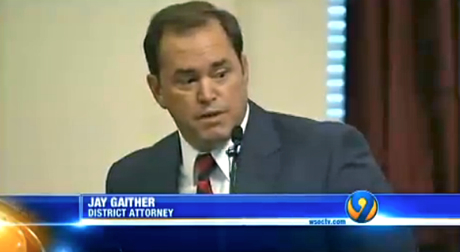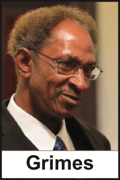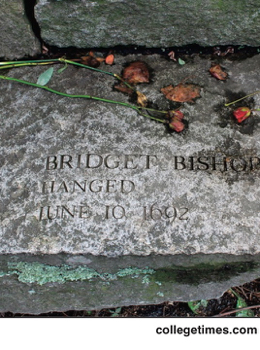Rascals case in brief
In the beginning, in 1989, more than 90 children at the Little Rascals Day Care Center in Edenton, North Carolina, accused a total of 20 adults with 429 instances of sexual abuse over a three-year period. It may have all begun with one parent’s complaint about punishment given her child.
Among the alleged perpetrators: the sheriff and mayor. But prosecutors would charge only Robin Byrum, Darlene Harris, Elizabeth “Betsy” Kelly, Robert “Bob” Kelly, Willard Scott Privott, Shelley Stone and Dawn Wilson – the Edenton 7.
Along with sodomy and beatings, allegations included a baby killed with a handgun, a child being hung upside down from a tree and being set on fire and countless other fantastic incidents involving spaceships, hot air balloons, pirate ships and trained sharks.
By the time prosecutors dropped the last charges in 1997, Little Rascals had become North Carolina’s longest and most costly criminal trial. Prosecutors kept defendants jailed in hopes at least one would turn against their supposed co-conspirators. Remarkably, none did. Another shameful record: Five defendants had to wait longer to face their accusers in court than anyone else in North Carolina history.
Between 1991 and 1997, Ofra Bikel produced three extraordinary episodes on the Little Rascals case for the PBS series “Frontline.” Although “Innocence Lost” did not deter prosecutors, it exposed their tactics and fostered nationwide skepticism and dismay.
With each passing year, the absurdity of the Little Rascals charges has become more obvious. But no admission of error has ever come from prosecutors, police, interviewers or parents. This site is devoted to the issues raised by this case.
On Facebook
Click for earlier Facebook posts archived on this site
Click to go to
Today’s random selection from the Little Rascals Day Care archives….
Click for earlier Facebook posts archived on this site
Click to go to
Today’s random selection from the Little Rascals Day Care archives….
Anxieties about children still make us crazy
Aug. 16, 2013
“Ritual abuse may now seem an almost quaint aberration, a temporary fad that seized the popular imagination, as outdated as hula-hoops or disco fever. But our anxieties about children continue to affect our judgment. When a meta-analysis of research published in Psychological Bulletin (1998) suggested that not all children under the age of 18 were traumatized by having sexual experiences before adulthood, the U.S. House of Representatives passed a resolution condemning the association. Not surprisingly, the popular outcry that led to the Congressional resolution was sparked by talk show celebrity Laura Schlessinger.
“More recently, a book that explored whether overzealous response to fears about children and sexuality are harmful to the youth we seek to protect was published by the University of Minnesota press after trade publishers deemed it too controversial for their lists; Tim Pawlenty, then a state legislator, but who was elected governor of Minnesota in 2002, quickly moved to condemn the publication and the University for publishing it.”
– From “The Devil in the Details: Media Representation of ‘Ritual Abuse’ and Evaluation of Sources” by Barbara Fister in Studies in Media & Information Literacy Education (May 2003)
‘You don’t just brush off 24 years of a man’s life’
 Oct. 12, 2012
Oct. 12, 2012
The exoneration of Willie Grimes warms my heart, and not just because the 66-year-old parolee has become “Free at last!” after a 1987 rape conviction in Hickory.
As often lamented on this site, prosecutors such as those in the Little Rascals case simply refuse to acknowledge, much less take responsibility for their mistakes.
In the Grimes case, however, District Attorney Jay Gaither told the Innocence Inquiry Commission panel, “The State cannot argue any conclusion other than for innocence in the case of Willie Grimes,” then rested the state’s case and sat down.
Afterward, he explained that “In this week’s presentation of evidence we counted no less than 35 pieces of evidence and testimony in support of innocence…. The fact that the three-judge panel was so emphatic in its conclusion and decision only strengthens the confidence I have in our decision.”
 But Gaither went even further, on camera and rebroadcast by WSOC-TV: “On behalf of the district attorneys of North Carolina, I want to offer an apology to Willie Grimes.”
But Gaither went even further, on camera and rebroadcast by WSOC-TV: “On behalf of the district attorneys of North Carolina, I want to offer an apology to Willie Grimes.”
Yes – an apology!
Although the Grimes conviction occurred long before Gaither took office in 2002, DAs often feel compelled to defend even their predecessors’ performance. As former New York prosecutor Bennett Gershman has observed, “The prosecutor can’t do anything that undermines the public’s confidence in the prosecutor’s office. Once the public begins to doubt that prosecutors convict guilty people – that there may be mistakes in the system – that undermines confidence in the prosecutor….”
Gaither took the opposite approach. “You don’t just brush off 24 years of a man’s life and go on,” he told me Wednesday. “A series of events denied Mr. Grimes a fair trial. Closure was required.
“I wanted the public, as well as Mr. Grimes, to know that we weren’t just beat down, but that we were actually sorry.” (Click Gaither’s picture above to watch the broadcast that includes video of the courtroom apology.)
Also notable is how Gaither framed his apology: “I was speaking not so much for district attorneys as individuals, as for the State of North Carolina…. Only 44 of us have that right to say ‘The state says….’ ”
In this case, that right was admirably used. Would that it happened more often.
Three centuries later, witch trials remain uncomfortably relevant
 Oct. 31, 2016
Oct. 31, 2016
“Historical truths emerge only with time, after which they are ours, particularly on Halloween, to mangle.
“Early on, the Salem witch trials disappeared from the record; a hush descended over 1692 for generations. ‘The People of Salem Do Not Like to Be Questioned in Regard to the Witchery Affair’ reads a Philadelphia Inquirer headline – from 1895. It fell to others to resurrect the ‘witchcraft,’ as the South did during the debate over slavery. Then came Arthur Miller, who made off with the story, or at least a version of it.
“A lush mythology grew up around the trials, one that reassured us that these events took place in a remote land in no way resembling our own. In truth, they are deeply woven into the American fabric. They are more relevant than the lore suggests – our earliest instance of conspiratorial fantasy and reckless demonizing, of the brand of national distemper that grips us in anxious times.”
– From “Five Myths about the Salem witch trials” by Stacy Schiff in the Washington Post (Oct. 30)
Fifteen years ago today: Massachusetts officially exonerates five women hanged as witches in Salem.
![]()
An antipodal view: What would Bronte have thought?
 Feb. 10, 2012
Feb. 10, 2012
“(The scene of children screaming invective at a prison-bound Bob Kelly) was… the graphic heart of the documentary….
“The car pulled away, and they began to giggle self-consciously. A second or two of awkward silence heightened the artificiality of the moment, the sense of a construct that the girls fully understood. Then an older woman (presumably a mother) moved into the silence, and began to clap and cheer. A few others joined in in desultory fashion. ‘Let’s go get something (to) eat,’ said the mom….
“By chance, I had just finished reading ‘The Professor,’ a minor novel of Charlotte Bronte’s. Like most Bronte novels it was laced with leisurely reflections, and this one struck me powerfully enough to note down: ‘Human beings – human children especially – seldom deny themselves the pleasure of exercising a power which they are conscious of possessing, even though that power consists only in a capacity to make others wretched.’
“As those children shrieked at Bob Kelly through the glass of the police car window, I wondered if there wasn’t more than a whiff of that pleasure in power in the air.
“And then I remembered this town is called Eden, and we’ve known for a long while that the darnedest things happened in Eden.”
in the Canberra (Australia) Times, Oct. 18, 1998











0 CommentsComment on Facebook